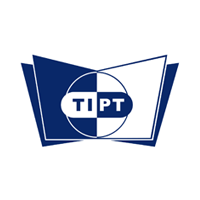
Pharma 4.0 applies Industry 4.0 concepts to the pharmaceutical industry and offers a great deal of potential for improvement within manufacturing. The concept involves expanding current manufacturing strategies to include a holistic approach that considers information from every stage, from development, to manufacturing and enterprise planning. This increases safety and efficacy along the full product lifecycle and requires cooperation between different industry players, various people along the supply chain and academia. This idea could possibly revolutionize pharmaceutical manufacturing, within the next decade. Quality assurance (QA) and quality control (QC) could be altered in many ways.
If you’re considering quality assurance training, read on to learn how Pharma 4.0 might affect your future career.
1. More Accessible Data for Pharmaceutical Quality Assurance and Quality Control
Data can be gathered more immediately with the advanced analytics and information technologies that are available. For example, the possibility for flowback of real-time patient data could allow for the quality of pharmaceutical products to be monitored more efficiently. With real patients contributing their thoughts about the risks and benefits of their treatments, that data can be shared and used across every step of the manufacturing process. For quality assurance purposes, this provides a first-hand account of how the drugs are being received and experienced. During your quality assurance courses, you’ll receive hands-on experience which will help pave your path to a lucrative career, and handling data is part of the practical approach in quality assurance training. Automation and digitization of data improves the accessibility of information, with less limitations around finding and applying what’s been collected. This could make it easier in your future to obtain the information you need.
Online real-time testing could improve efficacy and collection of feedback, in contrast to less efficient testing done exclusively in labs. The use of simulation and the digitalization of processes would aim to improve productivity along the entire supply chain, including GxP and official standards such as FDA guidelines. This provides an optimistic outlook for your future career to be one of progress and more accuracy.
2. Requiring Collaboration Using IT After Graduating from a Quality Assurance Program
GxP documentation could make a full switch from paper documents to electronic, if things continue in this direction. Digitized information can be shared between all stages of the value chain in the pharmaceutical industry. Information technology also allows data to be distributed and shared across different industry players, rather than kept isolated within company walls. You may find that you will work increasingly with other companies and sectors in your future career. This benefits the industry as a whole and is a resourceful way to move forward with pharmaceutical manufacturing, that caters to more market demands.

This means that collaboration could become a much larger part of working within pharmaceutical QA. With the opportunity to combine findings and recordings from all sorts of different stages and resources of the process, more offering of and sharing of information will build on what’s available to you and your peers. Communication between industry players and within companies could expand to build a stronger network through information. Co-op placements, mentorship opportunities and experience with industry-standard training facilities can all reinforce the positive impact that a wider-reaching network can have on your career. This will also prepare you to apply your education to a career in pharmaceutical quality assurance and quality control.
3. Enabling More Product Variants and Small Batch Sizes to be Produced
There is a demand for personalized pharmaceutical products that require small batch production. For example, orphan drugs are medications that are used to treat rare diseases. Since these diseases affect a small population, they need to be created in small quantities. Health Canada recently committed to improving access to these drugs, which means you may begin to encounter them more and more as you move forward in your career. You may also find that individual patient input is being integrated more into regulating drugs, with patient-centric development methods. New technologies are helpful in keeping up with a demand for more varied products, as an efficient system is required where quality control can be monitored using information technology. You may need to become more adaptable to new technologies in order to keep up with changes as IT methods are refined.

Interested in a Quality Assurance program with start dates in January, March, June and September?
Learn more about what Toronto Institute of Pharmaceutical Technology has to offer!
